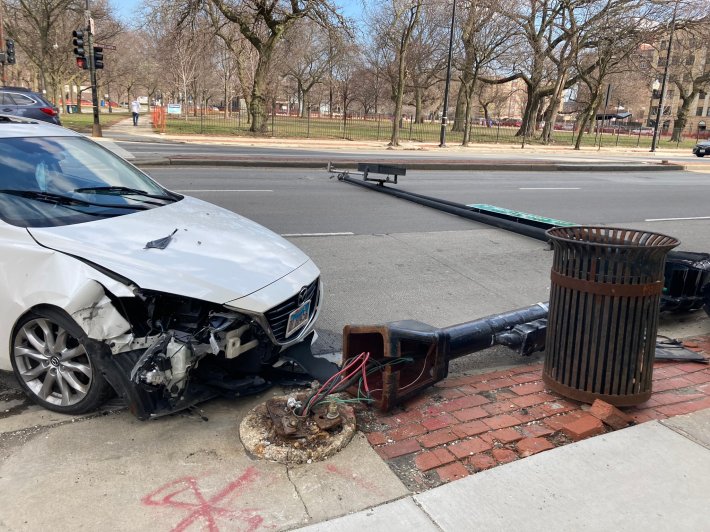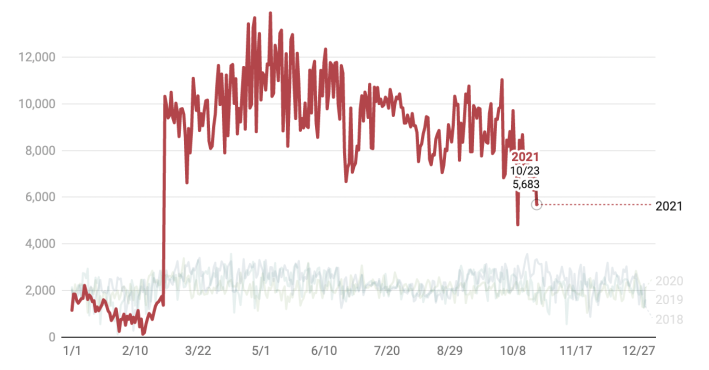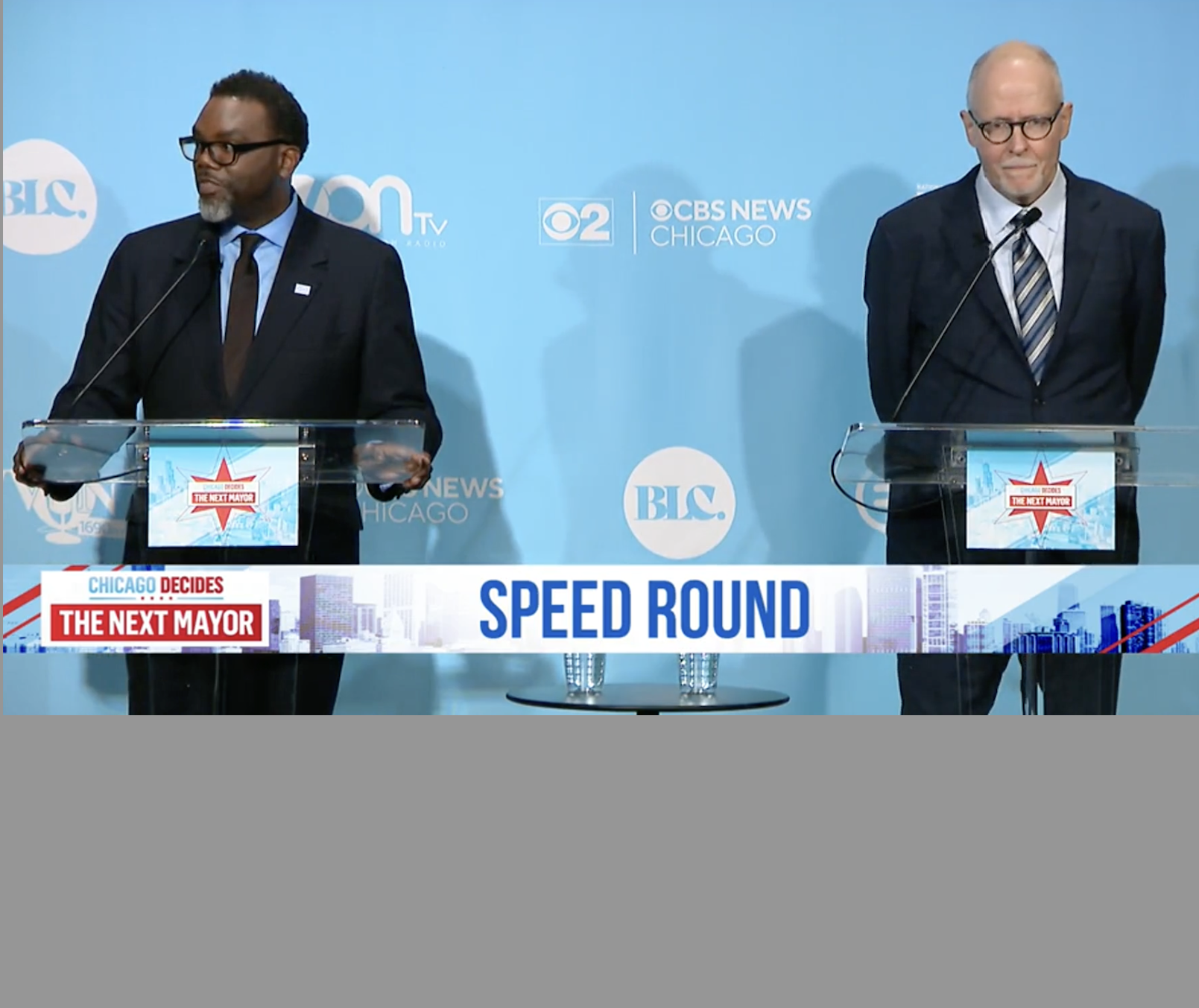At last night's Chicago mayoral candidate debate, both Paul Vallas and Brandon Johnson promised to get rid of Chicago's speed cameras, which research has shown have prevented hundreds of injury and fatality crashes. If this is done without implementing equally effective street redesigns at these locations, more Chicagoans will be seriously injured and die in crashes. Doing so would be incredibly irresponsible at a time when Chicago and cities nationwide are seeing a spike in traffic fatalities.
During the lightning round of questions at the end of the forum, the Business Leadership Council, Chicago Urban League, NABJ Chicago and WVON 1690 and VON-TV, the mayoral hopefuls were asked about their positions on automated enforcement. A recent University of Illinois at Chicago study found that our city's speed camera program prevented more than 200 injury and fatality crashes between 2015 and 2017.
The study also found that a disproportionate number of cars whose drivers committed camera-recorded violations are registered in predominantly Black or Latino areas. However, the city responded to that finding by rolling out the Clear Path pilot, which allows low-income motorists to pay only half the fine and offers a debt-forgiveness program, significantly addressing that issue.

"I’m for phasing [speed cameras] out if the Constitution allows us to," Johnson said. "And if we can’t, wherever a speed ticket has been accumulated, or acquired, that ZIP code should get the revenue," In response to a Sun-Times and WBEZ questionnaire, Johnson called the cams a "cash grab" and proposed replacing them with reduced speed limits, traffic calming infrastructure such as speed humps, and other street redesigns such as "road diet" lane reductions to force drivers to hit the brakes.
Earmarking ticket revenue from communities that are plagued by speeding to use for traffic safety initiatives in those neighborhoods is a good idea. So is replacing punitive enforcement measures with Complete Streets projects that keep people from speeding in the first place, but only if equally effective safe street makeovers are completed before the cameras are taken down.
Unfortunately, the “Make road diets, not speed traps” approach is much easier said than done. That’s because many of the same people who hate automated enforcement also oppose taking any space away from drivers.
Vallas said he thinks speed cameras do have a function near schools during school hours. But during a press conference after the debate he said, “I really think that these speed cameras, with some exceptions, should be phased out. And I also think that almost immediately, we should go back to the old speed cap threshold,” according to a report by Block Club's Quinn Meyers.
Originally Chicago speed cameras only issued tickets to drivers going 10 mph or more over the speed limit, but the threshold was lowered to 6 mph in early 2021. Ticketing data indicates the change has been very effective in encouraging safer driving speeds. Chicago's default speed limit is 30 mph, and federal studies show that a person struck at 36 mph will usually die.

'These cameras and the fees and the fines that are levied are just punishing the working poor most, and it’s really causing a devastating impact on poor communities," Vallas added at the presser. Again, Clear Path goes a long way to address economic and racial equity concerns about the program.
It's disappointing that even politicians who claim to care about public safety and transportation equity have a blind spot when it comes to automated enforcement, which protects the most vulnerable Chicagoans, simply because traffic cameras are unpopular with drivers.




